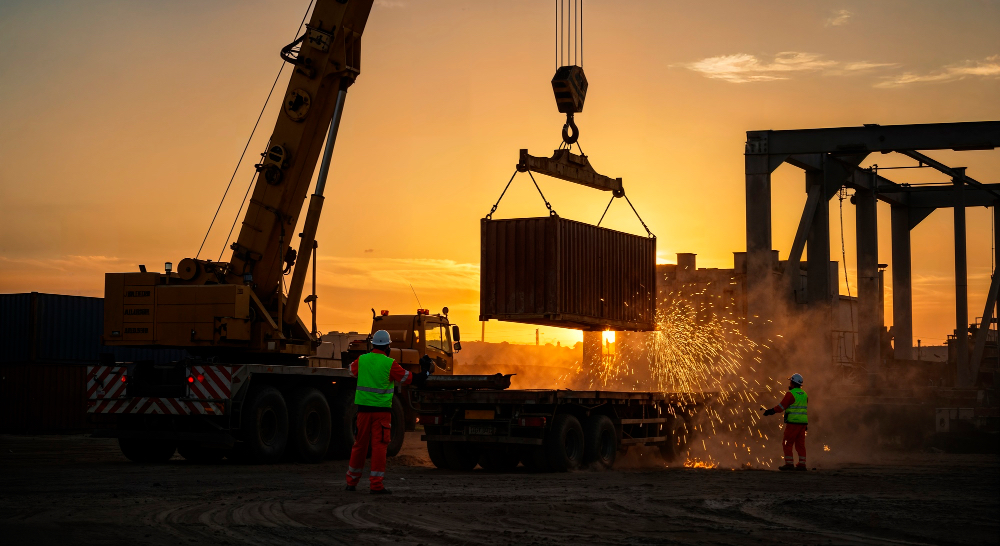The landscape of global political changes on shipping is shifting under our feet. For businesses that rely on the steady flow of goods across borders, this era of unprecedented political volatility isn’t just a headline—it’s a direct threat to daily operations, budgets, and customer satisfaction. From new protectionist laws like the proposed “One Big Beautiful Bill” in the U.S. to sudden geopolitical flare-ups, the rules of trade are being rewritten, and your supply chain is on the front line.
Navigating this new reality requires more than just a reliable carrier; it demands foresight, agility, and a strategic partner who can turn uncertainty into a competitive advantage. This comprehensive guide will break down the complex effects of global political changes on shipping and provide a powerful, actionable framework to help you conquer the challenges ahead.
Understanding the Shockwaves: What Are Global Political Changes in Logistics?
When we talk about global political changes on shipping, we’re referring to a broad spectrum of government-level actions and geopolitical events that directly influence the movement of goods. These are not minor ripples; they are shockwaves that can reshape entire trade ecosystems.
Key examples include:
- New Legislation: Major bills that alter tax codes, infrastructure spending, and manufacturing incentives.
- Tariffs and Trade Wars: The imposition of duties on imported goods, leading to retaliatory measures from other nations.
- Trade Agreements: The creation, renegotiation, or dissolution of trade blocs (like Brexit or USMCA).
- Sanctions: Political restrictions that prohibit trade with certain countries, companies, or individuals.
- Geopolitical Conflicts: Regional disputes that can close critical shipping lanes, like the Red Sea or the South China Sea.
The logistics sector is uniquely vulnerable because it operates at the intersection of these international borders, regulations, and relationships. A single political decision made in one country’s capital can add days to a shipment’s transit time and thousands of dollars to its cost.
A Live Case Study: The “One Big Beautiful Bill” and Its Potential Impact
To see how one piece of legislation can affect the entire logistics network, look no further than the “One Big Beautiful Bill” currently being debated in the U.S. Senate. While presented as a tax-cut package, its provisions reveal a clear agenda that will have a profound impact on global political changes on shipping.
- Impact on Infrastructure: The bill allocates significant funds to modernize U.S. ports and air traffic control and revitalize the nation’s shipbuilding industry. While this promises long-term efficiency gains, the short-term disruption and reprioritization of projects could create logistical bottlenecks.
- Impact on Manufacturing & Sourcing: With “Made-in-America” tax breaks and incentives for domestic manufacturing, the bill is designed to encourage companies to reshore their production. For logistics managers, this signals a potential future shift from international inbound freight to a more complex domestic distribution network.
- Impact on Customs & Compliance: The bill’s emphasis on border security and funding for customs agencies suggests that importers may face heightened scrutiny, more complex documentation requirements, and potential delays at ports of entry.
[Image: A container ship navigating a complex world map with glowing country borders. Alt text: A visual representation of the complex impact of global political changes on shipping.]
The 5 Devastating Ways Global Political Changes on Shipping Disrupt Your Business
Understanding the high-level theory is one thing. Seeing how it directly impacts your bottom line is another. Here are the five most critical disruptions your business faces.
1. Skyrocketing Costs & Tariff Instability
The most immediate effect of political change is often financial. A surprise tariff can wipe out a product’s profit margin overnight. This instability makes it nearly impossible to forecast costs accurately, leading to volatile pricing for your customers and immense pressure on your operating budget.
2. Unpredictable Transit Times & Route Disruptions
When a key shipping lane becomes a conflict zone or a nation closes its borders, cargo must be rerouted. These diversions add thousands of miles and weeks of transit time to your schedule. The result is stockouts, production halts, and broken promises to your customers, severely damaging your brand’s reputation for reliability.
3. Evolving Compliance & Customs Headaches
Each new trade agreement or sanction comes with a mountain of new paperwork and regulatory hoops. A single mistake in customs declarations can lead to hefty fines, seizure of goods, and long-term blacklisting. Keeping up with these ever-changing rules across multiple jurisdictions is a full-time challenge.
4. Supply Chain Restructuring & Sourcing Shifts
Policies designed to favor domestic manufacturing force companies to rethink their entire supply chain. Finding, vetting, and integrating new suppliers is a costly and time-consuming process. This mandatory restructuring introduces significant risk, especially if new domestic suppliers can’t match the capacity or cost-effectiveness of established international partners.
5. Increased Security Risks & Insurance Premiums
In times of political instability, the risk of cargo theft, piracy, and damage increases. This forces logistics providers to implement more stringent security measures, and insurance companies respond by raising their premiums for cargo and liability coverage, adding another layer of cost to every shipment.
Your Strategic Blueprint: How to Conquer Political Uncertainty in Logistics
While you can’t control geopolitics, you can control how you prepare for them. A proactive, resilient logistics strategy is your ultimate defense.
Diversify Your Supplier and Carrier Base
Avoid placing all your eggs in one basket. If your entire supply chain depends on a single country or a single shipping route, you are dangerously exposed. Work to build relationships with suppliers and logistics partners in different geopolitical regions. This diversification creates flexibility, allowing you to pivot quickly when one area becomes unstable.
Leverage Technology for Real-Time Visibility
In a volatile world, information is power. Modern logistics platforms offer real-time tracking and predictive analytics. This technology allows you to see disruptions as they happen, not days later. With this visibility, you can proactively communicate with customers, adjust inventory levels, and work with your logistics partner to find alternative solutions immediately.
[Video: An embedded video explaining the concept of supply chain diversification and its benefits for risk management.]
Partner with an Agile Logistics Expert
Navigating global political changes on shipping is not a DIY project. An experienced logistics partner like Falcon Cargo acts as your eyes and ears on the ground. We have established networks, deep knowledge of international compliance, and the agility to reroute and re-plan shipments in response to real-time events. We manage the complexity so you can focus on your core business.
Don’t wait for a crisis to find a solution. [Internal Link: Contact Falcon Cargo today for a strategic consultation on building a resilient supply chain.]
Stay Informed and Plan Ahead
Knowledge is the foundation of a strong strategy. Regularly follow reputable sources on international trade and politics. This allows you to anticipate potential disruptions before they become critical.
External Resource: Stay updated with high-level trade data and forecasts from the World Trade Organization’s Global Trade Outlook.
Conclusion: Turn Uncertainty into Your Advantage
The constant drumbeat of global political changes on shipping is the new normal. Businesses that cling to outdated, rigid supply chain models will inevitably fall behind.
However, those who embrace a strategy of resilience, diversification, and strategic partnership will thrive. By anticipating risks, leveraging technology, and working with experts, you can transform political volatility from a devastating threat into a source of competitive advantage. You’ll be faster, smarter, and more reliable than the competition, no matter what the world throws at you.
Ready to build a supply chain that’s ready for anything? Let Falcon Cargo be your guide.





